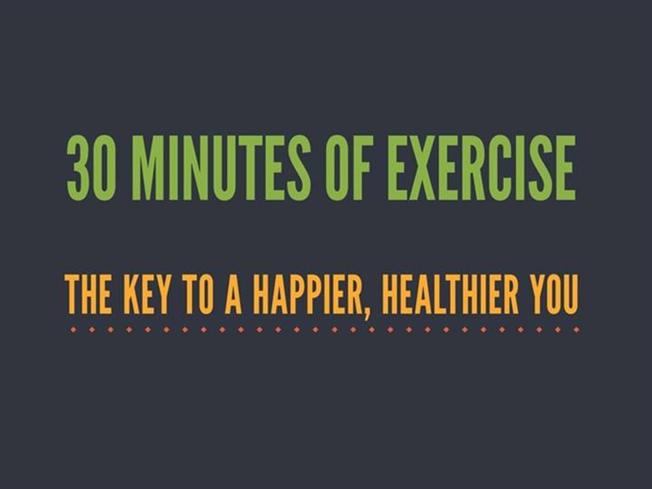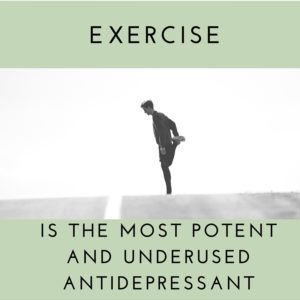Exercise, Endorphins, and Empowerment: Transforming Your Mental Health through Physical Activity
Did you know that a mere 30 minutes of exercise can have a powerful impact on your mental well-being? It's true! In today's fast-paced and often stress-filled world, taking care of our mental health is of utmost importance. And when it comes to finding effective strategies for promoting mental well-being, exercise emerges as a true game-changer.
According to the World Health Organization, mental health is not merely the absence of illness but a state of complete well-being. It encompasses our emotional, psychological, and social well-being, shaping how we think, feel, and act. Mental health influences our ability to handle stress, build meaningful relationships, and make informed decisions. It is the very foundation of our overall well-being.
In this blog post, we delve into the profound impact of exercise on mental health, unlocking the secrets behind how working out can boost your mood, reduce stress and anxiety, and improve cognitive function. From the release of endorphins to the growth of new brain cells, the science behind exercise's effect on the brain is truly fascinating.
Connection Between Exercise and Mental Health
Physical activity and mental well-being are strongly intertwined. Engaging in regular exercise has been shown to have a profound impact on mental health, contributing to improved mood, reduced stress levels, and enhanced overall well-being.
When we exercise, our brains undergo remarkable changes that
influence our mental state. One of the key mechanisms behind this is the
release of neurotransmitters, which are chemical messengers that facilitate
communication between brain cells. Two neurotransmitters in particular,
endorphins and serotonin, play crucial roles in mood regulation.
Serotonin: Serotonin is another neurotransmitter closely
linked to mood. Exercise stimulates the production and release of serotonin in
the brain, which can elevate mood, promote a sense of calmness, and enhance
overall well-being. Adequate levels of serotonin are essential for maintaining
healthy mental health.
A study published in the Journal of Psychiatric Research
(2018) by Mikkelsen et al. examined the association between exercise and mental
health outcomes in a large sample of adults. The findings revealed a
significant correlation between physical activity and reduced symptoms of
depression and anxiety. The study also highlighted that engaging in regular exercise
was associated with higher levels of well-being and improved self-esteem.
Another study published in the Journal of Clinical Psychiatry (2017) by Schuch et al. conducted a meta-analysis of randomized controlled trials examining the effects of exercise on depressive symptoms. The analysis indicated that exercise interventions, including aerobic exercise and resistance training, had a moderate to large effect in reducing depressive symptoms. These findings highlight the potential of exercise as an effective intervention for individuals experiencing depression.
Benefits of Exercise for Mental Health
Regular exercise offers a myriad of benefits for mental health, extending beyond the physical realm. Let's explore how exercise positively impacts mental well-being and enhances various aspects of our cognitive and emotional functioning.
Reduction of Stress and Anxiety
Exercise has long been recognized as a powerful stress reliever. When we engage in physical activity, our bodies release endorphins as we discussed earlier, which act as natural stress fighters. These endorphins help to reduce feelings of tension and anxiety, promoting a sense of calmness and relaxation.
For instance, a meta-analysis published in the Journal of Clinical Psychology (2018) by Stubbs et al. examined 49 randomized controlled trials and found that exercise interventions significantly reduced anxiety symptoms across various populations. The analysis concluded that exercise could be an effective adjunctive treatment for individuals with clinical anxiety disorders.
Additionally, exercise provides a healthy outlet for managing and coping with stress. It serves as a distraction from daily worries, allowing individuals to focus on the physical exertion and the positive sensations that accompany it.
Boost in Mood and Happiness
Exercise has a profound impact on mood regulation, leading to a boost in overall happiness. Physical activity triggers the release of endorphins that create feelings of euphoria and well-being and can help to alleviate symptoms of depression and prevent its onset.
Research has consistently demonstrated the positive effects of exercise on mood. A study published in the American Journal of Preventive Medicine (2018) by Schuch et al. analyzed data from 1.2 million individuals and found that exercising, regardless of intensity or duration, was associated with lower rates of depression. Another study published in the Journal of Happiness Studies (2019) by Huang et al. revealed a positive correlation between exercise frequency and subjective happiness levels.
Engaging in regular exercise also promotes better sleep patterns,
which in turn contribute to improved mood and emotional well-being. The
National Sleep Foundation reports that physical activity can help regulate
sleep-wake cycles and improve sleep quality, leading to increased daytime
energy and improved mood.
Improvement in Cognitive Function
Exercise is not only beneficial for our emotional well-being but also for our cognitive abilities. Physical activity has been shown to enhance various aspects of cognitive function, including memory, attention, and executive function.
A study published in the Journal of Aging and Physical Activity (2020) by Liu-Ambrose et al. investigated the effects of aerobic exercise on cognitive function in older adults. The findings revealed that regular aerobic exercise, such as brisk walking or cycling, improved memory and executive function. Another study published in the Journal of Sport and Exercise Psychology (2017) by Chang et al. demonstrated that acute bouts of exercise enhanced attention and cognitive performance in young adults.
Increased Self-Esteem and Body Image
Exercise plays a crucial role in fostering a positive self-image and improving self-esteem. Engaging in physical activity allows individuals to challenge themselves, set and achieve goals, and witness the positive transformations in their bodies. These accomplishments and improvements contribute to a sense of empowerment and self-confidence.
Research has consistently demonstrated the positive
relationship between exercise, self-esteem, and body image. A study published
in the Journal of Health Psychology (2018) by Sabiston et al. found that
individuals who engaged in regular exercise reported higher levels of
self-esteem and body satisfaction compared to those who were less active.
Moreover, exercise has been shown to reduce body dissatisfaction and mitigate
the negative effects of media exposure on body image perceptions.
Practical Tips for Incorporating Exercise for Improved Mental Health
Creating an exercise routine that supports your mental health is essential for reaping the full benefits of physical activity.
Here are some practical tips to help you incorporate exercise into your routine in a way that promotes mental well-being:
Start small and gradually increase: If you're new to exercise or getting back into it after a break, it's important to start small and gradually increase the duration and intensity of your workouts. This approach helps prevent injuries and allows your body to adapt slowly.
Find activities you enjoy: Discover activities that bring
you joy and make you feel energized. Whether it's dancing, swimming, cycling,
or hiking, finding activities you genuinely enjoy increases the likelihood that
you'll stick with them in the long run.
Set realistic goals: Establish realistic goals that are aligned with your abilities and fitness level. Setting achievable targets provides a sense of accomplishment and motivates you to continue your exercise journey.
Schedule it in: Treat exercise as an important appointment in your calendar. Set aside dedicated time slots for physical activity and prioritize them just like you would any other commitment.
Types of Exercises Beneficial for Mental Health
Various types of exercises have been shown to have specific benefits for mental health. Consider incorporating the following into your exercise routine:
Aerobic exercises: Activities such as brisk walking, jogging, swimming, or dancing increase heart rate and oxygen flow, leading to the release of endorphins and improved mood.
Strength training: Resistance exercises, using weights or bodyweight, help build muscle strength and promote overall well-being. Strength training can provide a sense of empowerment and boost self-esteem.
Yoga and mindfulness practices: Yoga combines physical movement with mindfulness, emphasizing deep breathing and relaxation. It has been found to reduce stress, improve mood, and enhance mental clarity.
Outdoor activities: Spending time in nature and engaging in outdoor activities, such as hiking or gardening, has been shown to have positive effects on mental health. Being in natural environments can reduce stress, increase feelings of calmness, and improve overall well-being.
Experiment with different types of exercises to find what resonates with you and brings you the most mental health benefits. You can also consider mixing different activities to keep your routine varied and enjoyable.
By following these practical tips and incorporating a variety of exercises into your routine, you can create a powerful foundation for supporting your mental health through physical activity.
In conclusion, exercise is not just about physical fitness and strength—it holds incredible transformative power for our mental health as well. Through the release of endorphins, exercise reduces stress and anxiety, fostering a sense of calmness and relaxation. It boosts mood and happiness, acting as a natural antidote to depression and promoting emotional resilience. Incorporating regular physical activity into our lives can have a profound impact on our overall well-being, enhancing our mental, emotional, and cognitive functioning. Make a commitment to yourself, and let the journey towards improved mental health begin with every step, every workout, and every moment of self-care. Your mind and body deserve it.
Remember, always consult with a healthcare professional before starting any new exercise routine, especially if you have pre-existing medical conditions.
Wishing you a fulfilling and uplifting journey towards a healthier mind and body!






















Comments
Post a Comment